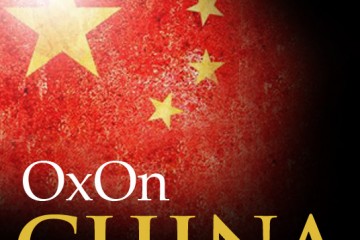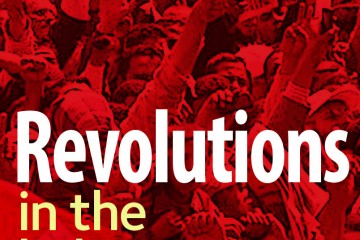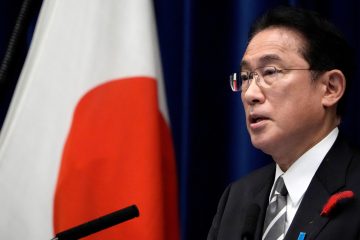
What is the future for the ‘China governance model’?
The leadership turnover in China last year took place in a shifting political situation. Namely, there have been increased calls for more political accountability and multi-candidate elections, broader media freedom and financial reform.
We need to watch this closely. How China’s leadership reacts to these calls for change will determine whether it will continue its phenomenal ‘rise’ or be hampered by intransigence.
Let’s take a closer look at the context. The uprisings in the Arab world have prompted many to ask whether China will be the next to be swept along in a wave of popular unrest that has toppled rulers in several countries. Indeed, the Chinese leadership, both in power and previously in power, has been watching the situation carefully. This attention has been particularly justified considering that the current Chinese president assumed power at a time when social media became a real force. These new forms of communication played an undisputable role in the Arab and Maghreb uprisings. Now, half a billion Chinese are registered on Sina Weibo, a website much like Twitter. This online platform has served “netizens” to voice many complaints ranging from governance malfunctions and corruption to food and environmental issues.
This raises inevitable questions. Is the bid for democratic reform a matter of time? Might the prediction of an “end of history” and of a uniform move in the direction of liberal democracy make a comeback? Or, might there be other sustainable alternatives?

National Dialogues and Dilemmas: Reflections on Libya and Yemen
The Arab uprisings, initially perceived as one unit of analysis, have gone through a rite of passage and identified themselves as distinct from one another; it is no longer logically sound to talk of one “spring”. Nevertheless, it is instructive to extract lessons learned from each experience and place them into conversation with one another. An Arab dialectic seems possible instead of a unified discourse on change and transitions. Libya’s ‘national dialogue’ has been launched in the hope of carving out a space of peace across the country and for developing a form of consensus on what is perceived as a reborn Libyan nation, post-Qaddafi. The National Dialogue Preparatory Commission’a (NDPC) Chairman Fadeel Lame emphasised that Libya needs to “move from one stage to another and from one situation to another and that this transition could be achieved only through the power of dialogue.”[1] Earlier in September 2013, Tarek Mitri, who heads the UN Support Mission in Libya, described it as a process that “would give voice to many Libyans and opens a space that does not exclude any of those who may have contributions to make to public life and are otherwise isolated, separated or entrenched in their partisan attitudes… [to] promote a national capacity to address urgent priorities and ensure public support to the efforts of state-building.”
The need for dialogue is indisputable in a country that seems ridden with conflict. In Tripoli, separatist movements gaining ground in the eastern part of the country. General instability highlights the urgency for dialogue – and the difficulties. Recently, militias from Misrata opened fire on peaceful protestors in Tripoli who were calling for the departure of militias and the restoration of peace. According to one account, more than 40 were killed and 400 wounded in the clashes.[2] The General National Congress (GNC) and government agencies froze; it was only through the intervention of local councils and civil society that an end of violence was reached.[3] As described by the reporter: “There was a tense calm in Tripoli on Sunday after more than 48 hours of bloodshed. Civil-society and community leaders abided by a general strike that coincided with a national mourning period for those slain. Shops were shut and normally busy commercial streets were devoid of traffic on the first day of the working week, witnesses reported.”
The question here then is not about need – in an ideal world, developing consensus among the Libyan people towards state building and a national identity would be the way out.
It is about capacity.

Can democrats learn from Machiavelli?
When politicians are described today as ‘Machiavellian’ the implication is that they are no more than cynical graspers at power for its own sake. Most historians of political thought have long argued that Machiavelli’s own views and politics were more complex than this. In his 2011 book, Machiavellian Democracy (previously reviewed for OurKingdom by Guy Aitchison), the political theorist John P. McCormick offers an innovative reading of Machiavelli. According to McCormick, Machiavelli was not only a republican thinker, but by the standards of his day, and our own, a radically democratic one. Moreover, some of Machiavelli’s ideas, such as his advocacy of plebeian, tribunate institutions, arguably remain relevant to today’s discussions of democratic renewal. Robert Jubb and Stuart White interview John here for the ‘Democratic Wealth’ series.

Constitutional Studies
The Constitutional Studies Programme is a joint initiative between the Faculty of Law and the Department of Politics at the University of Oxford. Its objectives are to increase the amount of interdisciplinary cooperation between law and political science in the field of constitutional studies and to raise the profile of the academic study of constitutional law and politics. This series of online symposia is a forum for exploring these themes in newly published works by recognised academics in these fields. We will include works on constitutional theory as well as on the empirical issues that underlie constitutions—particularly those that are important to uncodified constitutions like that of the UK. It will include posts from scholars in the disciplines of law …

The Trouble with Standards in Public Life
In the United Kingdom, thanks to the powerful influence of the Committee on Standards in Public Life, we tend to see public ethics primarily in positive terms: as standards to be upheld not as criminal corruption to be prevented. The Committee’s approach has been built on four key elements: high-level principles; codes of conduct for each area of public life; mechanisms of independent scrutiny; and education and training in the values implied by the principles and codes. Unfortunately, however, the focus on “standards” creates an ever-expanding public-ethics agenda. It builds on a challenging, if intuitively persuasive, premise: that we really can identify what, in its most recent Inquiry, the Committee called “best practice in promoting good behaviour in public life”. Too frequently it seems we fail to do so. The more we discuss “standards” the more we see the gap between theory and reality. Public organisations have regularly failed to deliver on basic standards of provision – for example in health or social care – and then concealed their failures. Public-private partnerships have revealed manifest unaddressed conflicts of interest. At senior levels blame avoidance is a regular feature of the policy process. As a result, we are still struggling to identify what, in cultural terms, works to uphold a cultural approach to ethics and integrity.

‘We were just using different words to mean the same thing’: Exploring the affective norms of political party manifestos
This is a research project that aspires to measure and understand the affective norms of political discourse. We already know that political parties propose policies to persuade the electorate. In fact, all else being equal, the party developing the most persuasive set of policies will win the election. But, we also know that persuasion is not only about numbers, policy proposals and goals. Rhetoric has an affective aspect that is difficult to measure and understand. How do political parties present their policies to make them more appealing and persuasive? And, how can political scientists extract these pieces of information? With respect to the first question, we argue that on top of the programmatic content of political texts, political parties use emotional appeals to convince that their policies are superior. To measure that we examine how affective political rhetoric is through a content analysis of political language.

Protecting Civilians
It feels wrong to watch the news about Syria and the Central African Republic night after night without seeing any effective international action being taken to stop the killing, displacement and rape. After millions of civilians were killed in the Second World War, the United Nations was set up specifically “to save succeeding generations from the scourge of war”. So why doesn’t it?
Hugo Slim investigates the current state of international politics regarding the legitimacy of humanitarian intervention and the responsibility to protect.

The Prospect of Scottish Independence
In September 2014 there will be a referendum in Scotland about whether to leave the United Kingdom, and if Scotland votes yes that will signal the end of a 300 year union. How has it come to this, what would Scottish independence mean, and what’s going to happen?
Jim Gallagher, Gwilym Gibbon research fellow at Nuffield College, Oxford, examines the potential consequences of a ‘yes’ vote both for an independent Scotland and the rest of the UK.









